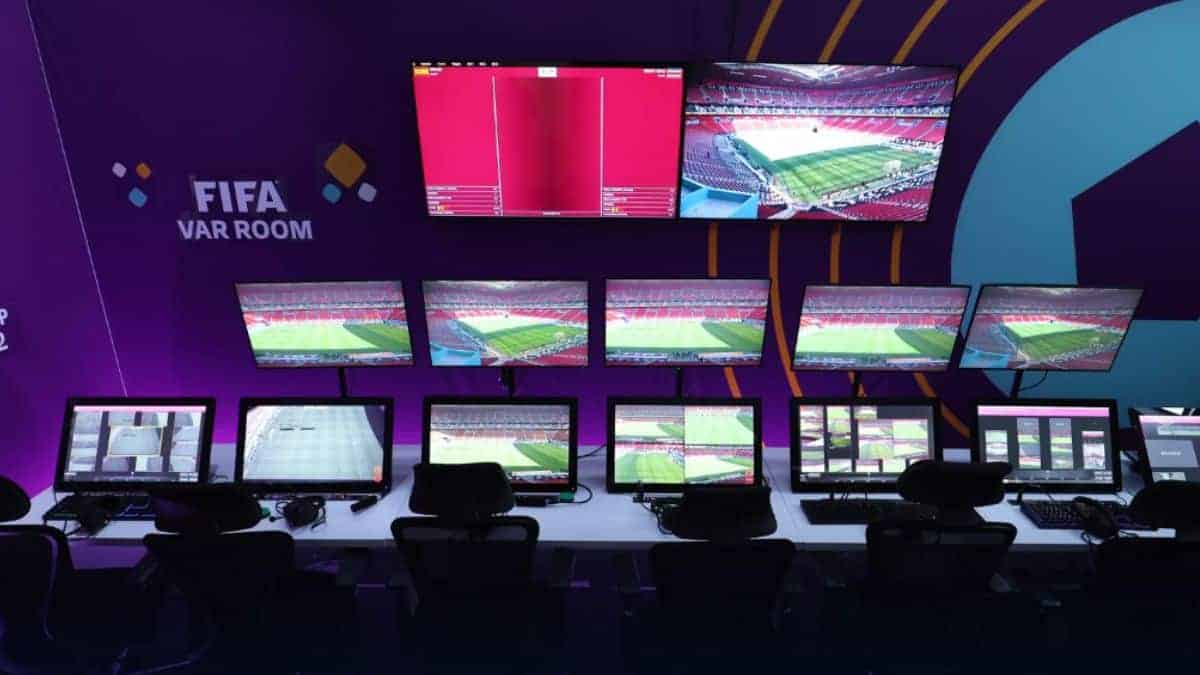VAR Tech: Back in the Spotlight Following Liverpool vs Spurs

Technology in football has been hotly disrupted for several years now. Plenty are for it, and some are against it. There have been resounding successes like goal-line technology, but one area that still leads to plenty of debate is video replays and when it’s time for VAR to intervene.
Tottenham Hotspur’s recent 2-1 win over Liverpool hit all the headlines for the wrong reasons. At 0-0, Liverpool scored a goal that was wrongly ruled out for offside. At this point, VAR should have intervened and awarded the goal. But it didn’t.
34’ – Diaz has the ball in the net but it’s ruled out for offside.
⚪ [0-0] 🔴#TOTLIV pic.twitter.com/6q42wNHORa
— Liverpool FC (@LFC) September 30, 2023
Manchester City set to benefit most from error
This mistake has potentially helped Manchester City in their bid to win the Premier League. Manchester City is the current betting favorites to win the title at -188. Liverpool is one of their closest rivals, a bet on football with Paddy Power is +550 for Klopp’s team to win the league.
It also affects the race for the top four and the lucrative Champions League positions. It is possible to bet on UEFA Champions League qualification, where Spurs are in the running at odds of +125. Making them fourth favorites.
The wrongly disallowed goal could prove to be very beneficial for Spurs, but very costly to Liverpool. It will probably be the end of the current season before we know just how costly.
The bottom line here is that technology wasn’t the problem. The lack of human intervention by VAR seems to have been the real cause.
When technology did fail
A very costly technology failure that did have real consequences came back in 2020 in a match between Aston Villa and Sheffield United.
The visitors, Sheffield United scored a perfectly good goal from a first-half free kick. The ball was only a few inches behind the line, but referee Michael Oliver was slightly unsighted.
Relying on the usually impeccable Hawkeye goal line technology that alerts the referee by a watch on their wrist, Oliver played on, assuming the ball hadn’t gone in. Up until then, the goal line technology had been so reliable, that nobody doubted it. For some reason on this day, it failed to work.
The non-goal had serious consequences. The match ended 0-0, and Aston Villa got one point they shouldn’t have. At the end of that season, Aston Villa stayed in the English Premier League by one point, ahead of Bournemouth.
Technology can’t make Sport perfect
On that occasion, the technology simply failed to work. In the Spurs vs. Liverpool match, the technology was there, but for some reason or another, the normal protocols were not observed. As a result, a costly mistake was made.
BBC asked me for 5 points to improve VAR. I got to 6 and counting … pic.twitter.com/wBbOF6vI2m
— Henry Winter (@henrywinter) October 2, 2023
Incidents like this don’t help technology in sports. It gives ammunition to those who oppose it. Even though this wasn’t the fault of the technology, it still suits the argument of those opposed to the use of modern technology in soccer.
There needs to be more education for the audience. Sports fans can be guilty of believing modern technology is the silver bullet that irons out all problems. But it isn’t. It can’t referee soccer matches, and make subjective calls. It can be binary, like with goal-line technology (when it’s working), but it isn’t perfect. Modern technology assists sports, not perfects them.
Disclaimer: Gambling involves an element of financial risk and maybe addictive. Please play responsibly and at your own risk. This post contains material that may or may not be legal in your country. Please play/not play subject to applicable law.


